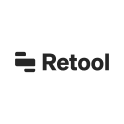7 Best Alternatives to SolidWorks in May 2024
Alternatives & Competitors to SolidWorks
Here are competitors or alternatives to SolidWorks and other similar Design software. You need to consider some important factors when choosing a tool like SolidWorks for your business: the main features of each solution, ease of use of user interface, pricing or value for money for instance. Each software has its pros and cons so it's up to you to choose the best alternative to SolidWorks that meets the needs of your small business. To help you compare each app and choose the right solution, we have put together a list of the best competitors of SolidWorks. Discover sofware like GitHub, Retool, Heroku or Genexus.
List of Alternatives to SolidWorks
From Design tools, we have selected the best alternatives to SolidWorks based on reviews for each solution and similarities with SolidWorks. Of course, each solution has its benefits and drawbacks, and its own features but, whether you are a small business, a startup or a large enterprise, you will find the right choice that empowers your projects.

Description
The online solution GitHub allows you to store the source code of your IT project. You can thus keep the history of your modifications and share your code with your collaborators, your partners or your customers.
GitHub compared to SolidWorks
GitHub has better positive reviews compared to SolidWorks: 98 vs 97
SolidWorks is better at customer service than GitHub: 4.8 vs 4.4
SolidWorks is more user friendly than GitHub: 4.8 vs 4.4
GitHub is better at value for money than SolidWorks: 4.6 vs 4.1
SolidWorks has more features than GitHub: 62 vs 42
GitHub: Pros & Cons
Best features
-
- Store and secure your code
-
- Access development environments
-
- Secure your software applications
-
- Collaborate with ease
-
- Automate your workflows
-
- Visualize your project
-
- Write higher quality code
-
- Leverage the power of AI
GitHub pricing
Free
Team
$4 / user / monthEnterprise
$21 / user / month
Description
Retool lets you build your own internal tools in minutes. Whether you need to manage customer tickets, your sales pipeline, or simply do reporting, with Retool you build the tools you need according to your company's needs.
Retool compared to SolidWorks
SolidWorks has more positive reviews than Retool: 97 vs 89
SolidWorks is better at support than Retool: 4.8 vs 4.3
SolidWorks is easier to use than Retool: 4.8 vs 4.6
Retool is more suitable for small businesses thanks to its good value for money than SolidWorks: 4.8 vs 4.1
SolidWorks is better at number of features than Retool: 62 vs 30
Retool: Pros & Cons
Best features
-
- Ready-to-use modules
-
- Collaborative editing
-
- Instant deployment
-
- Full-stack app development
-
- Integrations
-
- Customizable components
-
- Advanced permissions
-
- Drag and drop interface
Retool pricing
Free
Enterprise
Contact salesTeam
$12 / user / monthBusiness
$65 / user / month
Description
Heroku brings the value of simplicity, scalability, and flexibility to businesses. With Heroku, developers can easily deploy, manage, and scale their applications without worrying about infrastructure maintenance. It allows businesses to focus on building and improving their products while Heroku takes care of the underlying infrastructure.
Heroku compared to SolidWorks
SolidWorks has better positive reviews compared to Heroku: 97 vs 96
SolidWorks is better at customer service than Heroku: 4.8 vs 4.0
SolidWorks is easier to use than Heroku: 4.8 vs 4.5
Heroku is more suitable for small businesses thanks to its good value for money than SolidWorks: 4.2 vs 4.1
SolidWorks has more options than Heroku: 62 vs 24
Heroku: Pros & Cons
Best features
-
- PaaS (Platform as a Service)
-
- Git integration
-
- Add-ons
-
- Scalability
-
- Automatic updates
-
- Multiple programming languages
-
- Continuous Integration/Continuous Deployment (CI/CD)
-
- Logging and monitoring

Description
Genexus is a cross-platform software development tool that enables developers to create applications for web, mobile, and desktop environments. It uses artificial intelligence to automate the coding process, reducing development time and complexity. Genexus supports various programming languages and databases, making it a versatile solution for businesses looking to streamline their software development process.
Genexus compared to SolidWorks
SolidWorks has better positive reviews compared to Genexus: 97 vs 93
SolidWorks is better at customer service than Genexus: 4.8 vs 4.0
SolidWorks is easier to use than Genexus: 4.8 vs 4.5
SolidWorks has more functions than Genexus: 62 vs 38
Genexus: Pros & Cons
Best features
-
- AI-Driven Code Generation
-
- Multi-Platform Support
-
- Database Compatibility
-
- Collaborative Environment
-
- User-Friendly Interface

Description
Eclipse IDE is a popular open-source Integrated Development Environment used for programming. It supports various languages like Java, C++, and PHP through plugins. Eclipse provides features like code completion, debugging, and syntax highlighting, making coding easier. It's widely used for developing applications, particularly for Android and Java environments. Eclipse is highly customizable and extendable, making it a preferred choice for developers.
Eclipse ide compared to SolidWorks
SolidWorks has better positive reviews than Eclipse ide: 97 vs 87
SolidWorks is better at customer support than Eclipse ide: 4.8 vs 3.5
SolidWorks is easier to set up than Eclipse ide: 4.8 vs 4.0
Eclipse ide is more suitable for small businesses thanks to its good value for money than SolidWorks: 4.7 vs 4.1
SolidWorks has more functions than Eclipse ide: 62 vs 13
Eclipse ide: Pros & Cons
Best features
-
- Open-source
-
- Multi-language support
-
- Comprehensive tools
-
- Version control support
-
- Customizability and extensibility
Description
PowerApps is a powerful platform by Microsoft that empowers users to create custom business applications with ease. It enables users, even those without coding knowledge, to build apps tailored specifically to their business needs. With PowerApps, businesses can streamline processes, automate tasks, and improve productivity by creating intuitive and user-friendly applications. It brings immense value by providing a cost-effective and efficient solution to address unique business requirements, ultimately driving growth and success.
Powerapps compared to SolidWorks
SolidWorks has more positive reviews than Powerapps: 97 vs 88
SolidWorks is better at support than Powerapps: 4.8 vs 4.1
SolidWorks is easy to use compared to Powerapps: 4.8 vs 4.3
Powerapps pricing plans are more competitive than SolidWorks: 4.7 vs 4.1
SolidWorks is more versatile than Powerapps: 62 vs 51
Powerapps: Pros & Cons
Best features
-
- Rapid App Development
-
- Seamless Integration
-
- Mobile Optimization
-
- Data Visualization
-
- Secure and Reliable

Description
OpenShift is a cloud-based, open-source platform developed by Red Hat. It's designed to automate the deployment, scaling, and operations of applications so developers can focus on writing the code for their business, startup, or next big idea. OpenShift provides support for various programming languages and integrates with multiple developer tools for continuous integration/continuous delivery (CI/CD).
Openshift compared to SolidWorks
SolidWorks has better positive reviews than Openshift: 97 vs 96
SolidWorks is better at customer support than Openshift: 4.8 vs 0.0
SolidWorks's user interface is more convenient than Openshift: 4.8 vs 0.0
Openshift pricing plans are more competitive than SolidWorks: 4.4 vs 4.1
SolidWorks is more versatile than Openshift: 62 vs 14
Openshift: Pros & Cons
Best features
-
- Platform as a Service (PaaS)
-
- Scalability
-
- Containerization
-
- Integrated Development Tools
-
- Support for multiple languages
